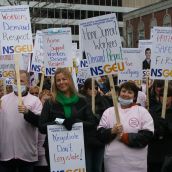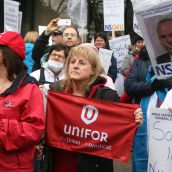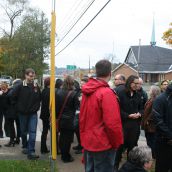KJIPUKTUK (HALIFAX) – What a year....
Home support workers, nurses and other health care workers saw their right to strike removed by the provincial Liberal government.
Canada Post announced cutbacks and the end of door-to-door delivery. Federal legislation made life for sex workers more dangerous.
Coburg Coffee baristas voted on unionization. There was another round of layoffs at the Chronicle Herald.
Oh yes, and Bill 1. Not only will that legislation move workers from one union to another without their input, it will also force workers to accept collective agreements that may well be inferior to their current ones.
Those are just some of the labour issues we covered in 2014.
Many of the stories have not yet concluded. Bill 1 for instance is still in arbitration, with an announcement expected in mid-January. The baristas are still waiting for a labour board decision.
2015 promises to be every bit as turbulent as 2014. The provincial Liberal government hints at privatization and more austerity. Municipal administrators say much the same.
Meanwhile, the workers' voice is often not heard in mainstream reporting. That's the voice we intend to continue to bring to the fore as events unfold in 2015.
Follow Robert Devet on Twitter @DevetRobert














